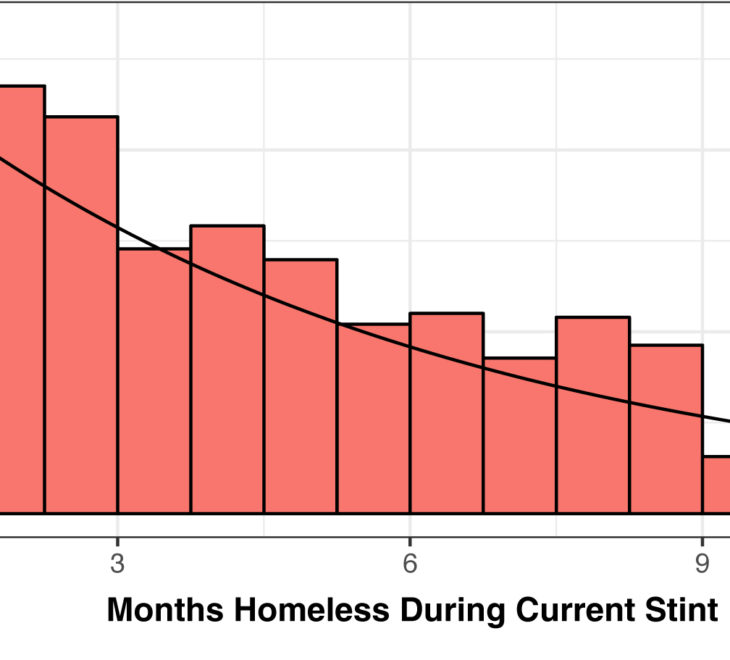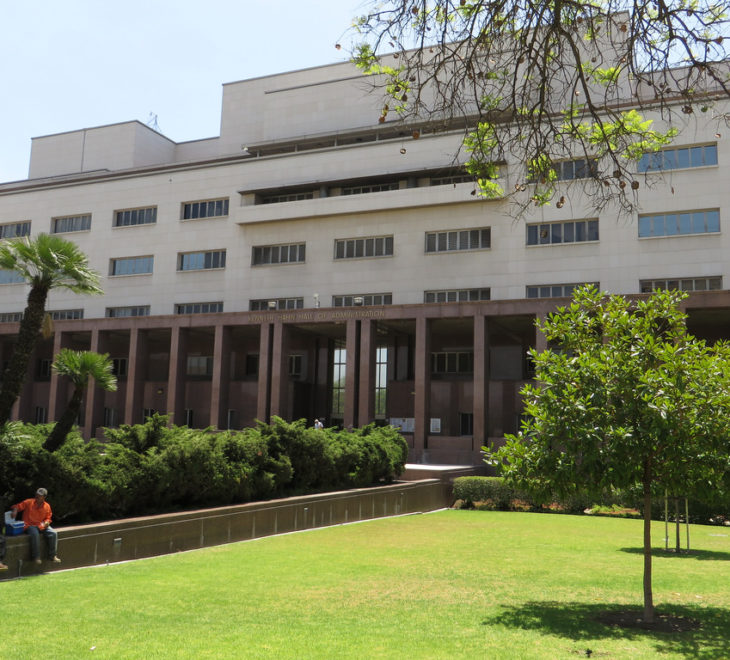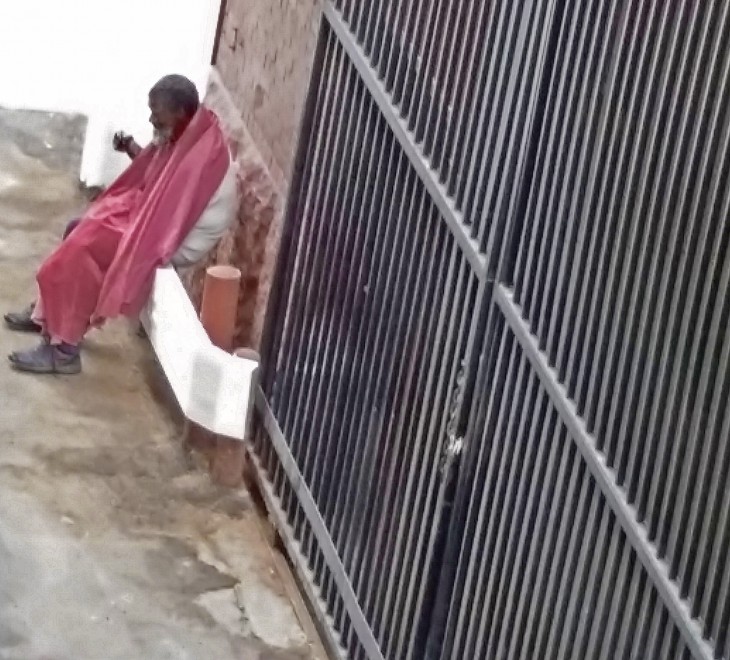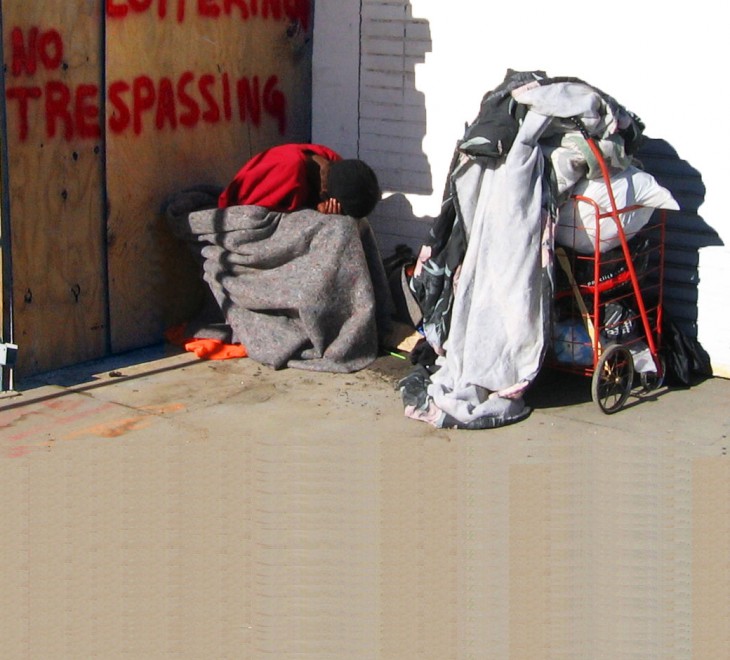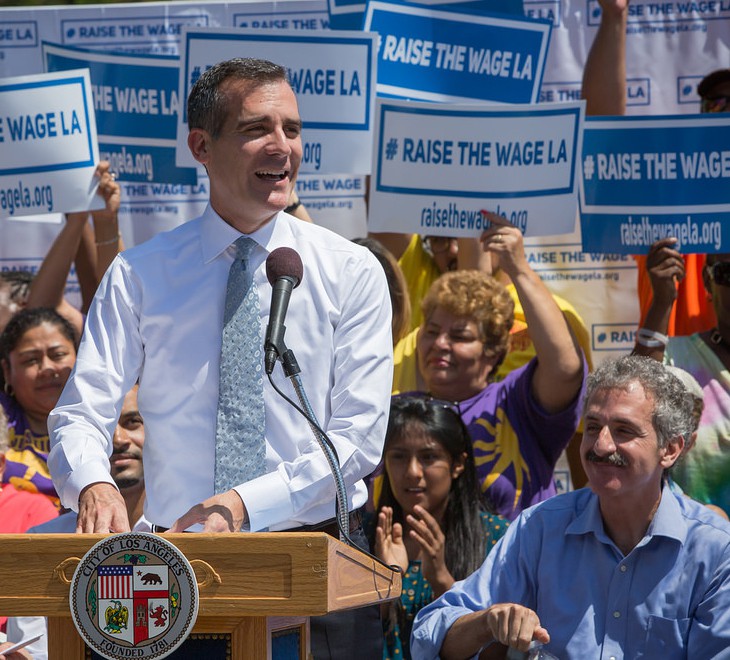FOR IMMEDIATE RELEASE: Thursday, December 15, 2022
CONTACT: Daniel Flaming, danflaming@economicrt.org, 213-892-8104
250,000 UNEMPLOYED U.S. WORKERS WERE SAVED FROM HOMELESSNESS BY GOVERNMENT HELP IN THE COVID-19 RECESSION
The United States had eye opening success in preventing homelessness during the surge in pandemic unemployment
LOS ANGELES – The new Economic Roundtable report, Breaking the Fall, shows that government actions to provide cash income and prevent evictions during the Covid pandemic cut the expected growth in homeless almost in half.
Homelessness from the Covid recession grew 43 percent less in Los Angeles County and 41 less percent in California and the United States than was expected based on the unemployment-to homelessness ratio from the 2008 recession identified the Economic Roundtable.
In the first two months of the pandemic, Los Angeles County lost 17% of jobs, California lost 15% and the U.S. lost 13%. This extreme surge in unemployment was expected to cause a corresponding surge in homelessness.
These pessimistic but solidly grounded projections did not materialize. This success in curtailing the growth of homelessness is attributable to the income support that government provided and to prohibiting evictions.
The reduced growth in homelessness comes after re-analyzing Los Angeles’ homeless count and finding that unsheltered homelessness was 13% larger in 2022 than in 2020. This is in contrast to the 0.5% reduction reported by the Los Angeles Homeless Services Authority (LAHSA).
When the unsheltered population is combined with the sheltered population, which did not require correction, the new estimate of 70,616 total homeless individuals in LAHSA’s jurisdiction in 2022 is 11.9 percent larger than in 2020.
Encounters of homeless residents with public institutions during the pandemic provide a record of the hardships they experienced.
Hospitals now report 900 times more homeless inpatients than they did 30 years ago. The primary medical diagnosis is a psychotic mental disorder. These conditions emerge and become more acute over the course of extended homelessness. This is a compelling reason for providing earlier, more effective interventions to identify and help individuals who are likely to become persistently homelessness.
There was a 56 percent increase in deaths among homeless individuals during the first year of the pandemic. This includes a 78 percent increase in deaths from drug overdoses. These are deaths of despair and evidence of the damaging effect of social isolation during the pandemic.
The number of calls from Los Angeles residents asking the city to clean up homeless encampments increased by 60 per month after the onset of Covid. This indicates that the number of unsheltered dwellings increased.
The County of Los Angeles terminated 28,435 individuals from the General Relief caseload at the height of unemployment during the Covid pandemic. This action appears to have been driven by an administrative decision rather than lack of eligibility and is likely to have caused greater hardship among homeless recipients.
Direct help to get workers back into jobs was almost nonexistent during the Covid recession, even though unemployment caused the economic crisis. The workers who are most vulnerable to homelessness are also likely to have the greatest difficulty becoming re-employed. Paying for housing with earned income meets the essential interests of workers and the public. Helping unemployed workers find new jobs will make an even bigger reduction in homelessness.
If there is a recession in 2023, the Economic Roundtable projects that without government intervention, 7,040 individuals will become homeless in Los Angeles County over the coming four years, accompanied by 20,560 individuals in California and 61,810 in the United States.
“We are equipped with proven tools for preventing homelessness. It is up to us to use them,” said Daniel Flaming, president of the Economic Roundtable.
About the Economic Roundtable
The Economic Roundtable is a nonprofit urban research organization based in Los Angeles that carries out large-scale data analyses to identify practical solutions to social, economic and environmental problems. To learn more, please visit http://economicrt.org/.
###



